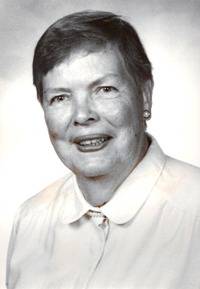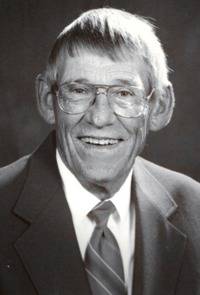History
The participation of faculty in institutional governance began at a few prestigious American research universities in the early 20th century and grew slowly following the organization of the AAUP in 1915 and the issuance of its Statement on Academic Governance five years later. However, the formal organization of faculties at the majority of institutions did not come until after World War II. In the case of Southwest Texas State Teachers College, faculty governance began in 1957 as the college prepared for the Southern Association’s accreditation visit the following year. In response to the Association’s standard on governance, the institution adopted a faculty constitution creating a General Assembly, composed of all faculty and chaired by the college president, and a nine member Faculty Council.
This bicameral system proved cumbersome and ineffective and was superseded in November of 1959 when the Faculty ratified a new Constitution that created the current Faculty Senate, now completing its fifty-first year. Initially, the Senate met infrequently and was cautious in exercising its recommendatory powers. In the Sixties, though, the organization began to become increasingly active, gradually assuming responsibility for revising the Faculty Handbook, choosing Piper nominees, recommending developmental leaves, appointing faculty committees, and making recommendations on virtually every issue impinging upon faculty interests.
For a few years the Senate’s influence was quite direct because its Chair sat as a voting member of the Executive Council (the equivalent of the current President’s Cabinet). This privilege was lost with a change of administration, but lines of communication are kept open through a monthly meeting of the President’s Academic Advisory Group, weekly meetings with the Council of Deans and semesterly meetings with Faculty Senate Liaisons.
By the very nature of its predominantly recommendatory functions, the Senate’s role is often reactive. However, it has on occasion taken leadership in initiating important changes, e.g., the move from a six- to a five-day week, the creation of the Advisory and Hearing Committees, and the drafting and adoption of our Financial Exigency Statement.
Throughout its first half century, the Texas State Faculty Senate has been quite stable. The Constitution has been amended just eight times, mostly to accommodate faculty representation on the body to changes in administrative organization. Perhaps 250 to 300 faculty have been members of the Senate at one time or another, and twenty-eight have served as chair (nine for two or more one-year terms and eighteen for single terms). Eleven former chairs are deceased.
Dr. Henrietta Avent

Dr. Henrietta Avent (1928-1998) came to SWTSU in 1958 as an Assistant Professor in the Women's Physical Education Department. Her dedication to excellence in all aspects of her professional life caused her to be a great influence on the development of the Physical Education Department, the School of Education and the University, even beyond her retirement in 1993. She was very active in her profession, holding offices and serving on committees in a variety of professional organizations in the state and nationally. Her service to her profession was recognized in 1975 when she was given an Honor Award by the Texas Association of Health, Physical Education, and Recreation. Her excellence as a teacher was recognized when she was selected as a Piper Professor in 1979. Dr. Avent also willingly served the University community on dozens of committees across the campus. Her opinion was sought after and respected by faculty and administrators alike because she was intelligent, thoughtful, fair, kind and above all, interested. Her favorite area of service to the University was through faculty governance. She served many terms on the Faculty Senate and was elected to serve as Chair of the Senate several times. Her commitment to empowering the faculty by helping to establish mutually agreeable written policies that would delineate rights as well as responsibilities was an invaluable service to all members of the University community. As a result of this service she was awarded the Faculty Senate Distinguished Service Award (the first) in 1992. Perhaps more important than any of these accomplishments however, was her tireless mentoring of all who came within her realm of influence. She mentored students, spurring them to the excellence of which they were capable. She mentored faculty, helping them to understand their responsibilities but also encouraging their self-confidence. She mentored administrators by giving them insight into the needs of the faculty and students. She helped to shape curriculum at the graduate and undergraduate level and to encourage the highest standards of excellence in all aspects of the university experience.
Dr. Everette Swinney

The Faculty Senate honors Dr. Everette Swinney for his efforts on behalf of faculty rights and academic freedom at SWT. Three of his many contributions to the faculty at SWT are of special note because they have made academic freedom more secure for all faculty.
- Financial Exigency Statement: Dr. Swinney persistently lobbied three presidents for more than a decade to secure a fair process to be used if the university were forced to eliminate programs as a result of severe financial necessity. President Hardesty finally consented to take the proposed policy to the Board of Regents, where it was approved in May, 1988, and published in the ninth edition of the Faculty Handbook.
- Grievance Policy: Dr. Swinney chaired the committee that wrote the current faculty grievance policy, which introduced the university ombudsman and five-person grievance committee.
- Post Tenure Review Policy: Asked to serve on a committee that could potentially eliminate tenure, Dr. Swinney was the primary author of a policy that actually strengthened faculty rights when faced with tenure revocation, while providing a collegial means for faculty improvement.
Dr. Everette Swinney earned his B.A. degree in history in 1954 from Ohio Northern University. In 1957, he graduated from Pennsylvania State University with an M.A. and came to SWT as an instructor. He was chair of the Faculty Senate for the first time in 1966, the same year he earned the Ph.D. at The University of Texas. The following year, he became chair of the History Department. He earned the rank of professor in 1968. He chaired the History Department until 1980, and resumed his Senate career in 1981. It lasted until his retirement in 1996. During those sixteen years, he served eight terms as chair of the Senate, becoming the first Faculty Senate chair to attend the Council of Deans as a member. In addition to serving on the Senate, Dr. Swinney chaired the Faculty Handbook Committee from 1968 to 1984, was the first special assistant to the president from 1991to 1993, and wrote analyses of performance and merit outcomes at SWT during the nineties. He is the author of the important monograph, Suppressing the KuKluxKlan: The Enforcement of Reconstruction Amendments: 1870-1877, as well as numerous other scholarly publications. All who know him recognize that a discussion of Dr. Swinney's career is incomplete without noting his family, who provide the meaning for his life and work. His children Katy, Gretchen, Suzanne, and Larry have presented Everette and his wife Donna with eleven grandchildren.
